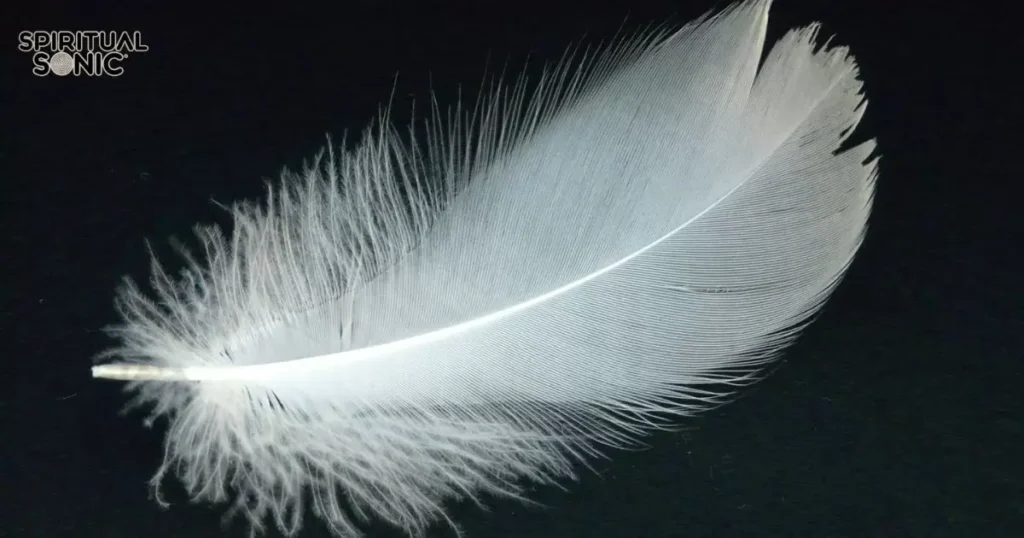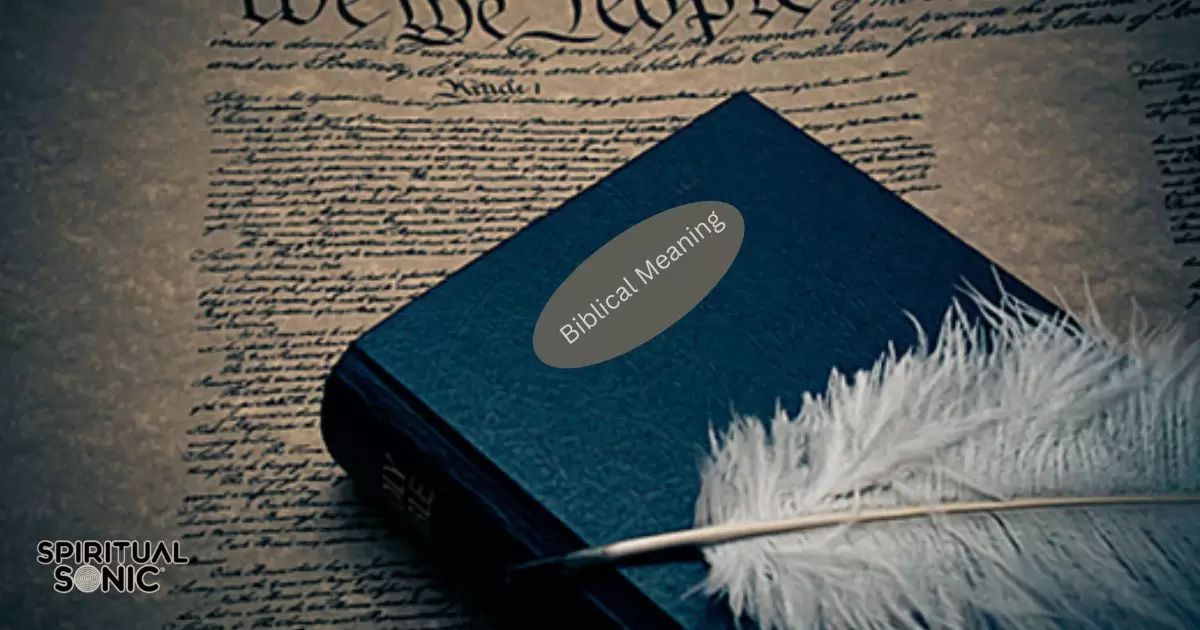In the tapestry of religious symbolism, few elements are as enigmatic and powerful as black feathers. These dark plumes, often overlooked or misunderstood, carry profound significance in biblical contexts.
This exploration will delve into the depths of scripture, uncovering the rich spiritual symbolism and divine messages associated with these mysterious tokens from above.
Ravens: God’s Messengers in Darkness
The Bible frequently mentions ravens, birds known for their glossy black feathers, as instruments of God’s will. These instances reveal a fascinating paradox: creatures of darkness serving as bearers of light and hope.
Elijah and the Divine Provision
In 1 Kings 17:2-6, we encounter a powerful example of God’s use of ravens:
Then the word of the Lord came to Elijah: Leave here, turn eastward and hide in the Kerith Ravine, east of the Jordan. You will drink from the brook, and I have directed the ravens to supply you with food there.
This passage illustrates how God can use unexpected sources even birds associated with darkness to provide for His chosen ones. The black feathers of the ravens became symbols of divine provision and care.
Noah’s Raven: Herald of New Beginnings
Another significant mention of a raven comes in the story of Noah’s ark:
After forty days Noah opened a window he had made in the ark and sent out a raven, and it kept flying back and forth until the water had dried up from the earth. (Genesis 8:6-7)
Here, the raven with its dark feathers serves as a scout, searching for signs of new life and the recession of the flood waters. This symbolism connects black feathers with new beginnings and the end of tribulations.
Wisdom and Intelligence: The Corvid Connection

Jesus himself draws attention to ravens in his teachings, using them as examples of God’s care and wisdom:
Consider the ravens They do not sow or reap, they have no storeroom or barn; yet God feeds them. And how much more valuable you are than birds (Luke 12:24)
This passage invites us to see black feathers as symbols of divine wisdom and intelligence. Ravens, known for their problem-solving abilities, become metaphors for trusting in God’s provision and guidance.
| Corvid Trait | Spiritual Parallel |
| Problem-solving | Divine wisdom |
| Adaptability | Spiritual resilience |
| Memory | Remembering God’s promises |
| Social intelligence | Community in faith |
Judgment and Transformation: From Darkness to Light
In biblical symbolism, darkness often precedes light, and tribulation leads to glory. Black feathers can represent this process of spiritual refinement.
But who can endure the day of his coming? Who can stand when he appears? For he will be like a refiner’s fire or a launderer’s soap. (Malachi 3:2)
This verse speaks to the purifying nature of spiritual trials. Like a blacksmith’s forge, the darkness represented by black feathers can be seen as a crucible for spiritual growth and transformation.
Protection and Divine Covering
Read more also: The Number 9 in the Bible: More Than Just an Ending
One of the most comforting images in scripture involves the protective nature of feathers:
He will cover you with his feathers, and under his wings you will find refuge; his faithfulness will be your shield and rampart. (Psalm 91:4)
While not explicitly mentioning black feathers, this verse opens the door to interpreting dark feathers as symbols of divine protection. The shadow cast by these feathers becomes a place of safety and comfort for the faithful.
Prophecy and Vision: Seeing Beyond the Veil

In Ezekiel’s vision, we encounter strange, otherworldly creatures:
Their faces looked like this: Each of the four had the face of a human being, and on the right side each had the face of a lion, and on the left the face of an ox; each also had the face of an eagle. (Ezekiel 1:10)
While not specifically mentioning black feathers, this vision of celestial beings with multiple animal aspects, including eagles, connects feathers to prophetic insight and enhanced spiritual perception.
Cultural Crossroads: Biblical and Ancient Near Eastern Perspectives
To fully appreciate the biblical meaning of black feathers, we must consider the cultural context of the ancient Near East.
- Egyptian Mythology: Ma’at, the goddess of truth and justice, used a feather to weigh souls in the afterlife.
- Mesopotamian Lore: Birds often served as divine messengers, bridging the gap between heaven and earth.
These cultural influences likely informed biblical writers’ use of feather symbolism, enriching our understanding of their spiritual significance.
The Gospel of Mary: Revelation in the Raven’s Wings
While not part of the canonical Bible, the Gospel of Mary offers an intriguing perspective on black feathers as symbols of hidden knowledge:
The darkness,” Mary replied, “is not a thing of itself, but a shadow cast by the light. This non-canonical text suggests that what appears dark (like black feathers) may actually be a key to deeper spiritual truths.
Modern Applications: Finding Meaning in Black Feathers Today

How can we apply these biblical insights to our modern spiritual journeys?
- Embrace challenges: Like the raven sent from Noah’s ark, see difficulties as opportunities for growth.
- Trust in divine provision: Remember Elijah and the ravens when facing uncertainty.
- Seek wisdom: Let the intelligence of corvids inspire your pursuit of divine knowledge.
- Find comfort in protection: Meditate on Psalm 91 when you need reassurance.
- Cultivate prophetic insight: Use the symbolism of black feathers to look beyond surface appearances.
Conclusion
From divine messengers to symbols of protection and wisdom, black feathers in biblical contexts offer a rich tapestry of meaning. They remind us that God often works through unexpected channels and that what appears dark may, in fact, be a portal to profound spiritual truth.
As we encounter these dark plumes in nature or symbolism, let them serve as reminders of God’s provision, protection, and the transformative power of faith. In doing so, we open ourselves to deeper spiritual insights and a more nuanced understanding of the divine presence in our lives.

Henry Davis – Content Writer
With three years of experience as a website content creator, I specialize in crafting engaging, SEO-friendly content that resonates with diverse audiences. My expertise spans various niches, ensuring high quality, well researched articles that enhance user engagement and drive organic traffic. Passionate about delivering value through words, I strive to create content that not only informs but also inspires action.

